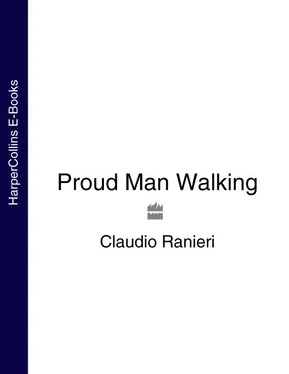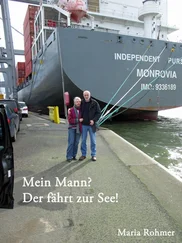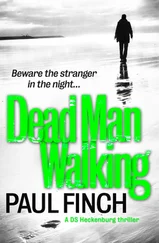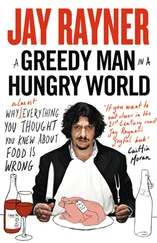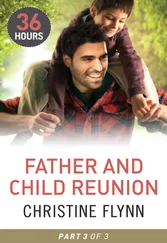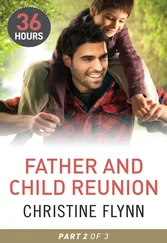CLAUDIO
RANIERI
PROUD MAN WALKING

Cover
Title Page CLAUDIO RANIERI PROUD MAN WALKING
MAY – JULY 2003
‘I want you to go on managing the team’
AUGUST
‘The squad has changed … rotation is going to be a fact of life’
SEPTEMBER
‘The first thing they ask me is why I didn’t play Bridge. Is this a joke?’
OCTOBER
‘This time no Zone dieting. Dessert! Well earned, I’d say’
NOVEMBER
‘Spitting is a vile gesture, better left to llamas’
DECEMBER
‘I hope … to become the Gordon Ramsay of football!’
JANUARY 2004
‘Where are you going, Sven? That’s the way to the players’ dressing room. At least wait until summer!’
FEBRUARY
‘It was just the two of us. What could I expect? Plans? A kid-gloves dismissal?’
MARCH
‘Hernan is cross with me … but the reason I left him on the bench is because you never give him the ball!’
APRIL
‘OK chaps, my fault! This time I got it wrong’
MAY
‘You’ll be here. I really do not think I will be. Maybe I’ll drop in and see you, we’ll have a coffee together’
CLAUDIO RANIERI FACTFILE
Acknowledgments
Copyright
About the Publisher
MAY – JULY
‘I want you to go on managing the team’
I’ve always stood in front of the dugout during the match. It’s been a habit now for many years; I couldn’t even tell you how many. From that position I enjoyed the best possible view of the goal.
Gronkjaer had the ball wide on the right. With his trademark change of pace – in all honesty, something few others in the modern game are capable of – he cut in towards the middle, hit an inswinger with his left foot and found an incredible angle. Dudek couldn’t get to the ball. Chelsea 2 Liverpool 1, and this after having been a goal down from Sami Hyypia’s opener and then levelling through Marcel Desailly. We had stepped on the gas and overtaken our rivals in what was effectively a play-off, contested fortunately for us at Stamford Bridge. No small advantage this, coupled with the fact that of the three results possible on the day, either a win or a draw would have taken us into the Champions League.
Perhaps this is a little unusual for an Italian but I do not like playing percentages or speculating on the outcome of fixtures. This was never my way even as manager of Napoli and Fiorentina in Serie A, when we had to face the likes of Inter and Milan at the San Siro, or Juventus in Turin. I always prepare my team to win. I want to play for the highest stakes, every time. It was the same during my time as manager at Valencia, when playing away to Barcelona or Real Madrid, so it could hardly be otherwise in the Premiership.
This particular game on 11 May 2003 was one we all wanted to win. Why? Because there was something important on the line in terms of our future; because Liverpool had turned us over at Anfield in the last couple of seasons with performances that hardly justified the results; and because we wanted to show we were capable of achieving something together as a close-knit unit, with no help from anyone else, and without any possibility whatever of spending on the transfer market, especially as the state of the club’s finances had been well known for a year or so following their exposure on all the front pages. In short, a mixture of pride and determination, competitive spirit and tactical skill was required. It was just the kind of situation I enjoy.
Running across the pitch and screaming, Jesper was celebrating a great goal. And we were all happy, because we knew it was a really important one, although at that particular moment, none of us realized just how important.
I loaded everything into the car. Alongside me was my wife Rosanna, and in the back, a few suitcases filled with summer clothes (and here’s another myth that needs to be put to rest – the idea Italians and other Europeans have about the British summer. It really does exist, and can be as warm and enchanting as in Mediterranean countries). And there was ‘Shark’, my Alsatian, whose name was chosen by my daughter from the map of Australia in the atlas – perhaps it was Shark Bay that took her fancy – as a replacement for ‘Boss’, the name he had been christened with, and which could not work. There would have been too many of us around: me on the touchline, my wife, the dog …
On that trip back to London after a short break at the end of the season, I was carrying from Italy all my hopes and convictions for another season as manager of Chelsea. I knew I would not be able to ask for anything from the club in terms of buying new players, but knowing the squad I had got together, I was sure I could count on them to make certain we would enjoy our Champions League adventure and maybe even take a few important scalps during the season. After all, these would be the same players we had when we qualified for Europe in 2003, and the same who took us to the FA Cup Final in 2002. Frankly, as we approached Strasbourg on the motorway, I was wondering whether the club would be able to resist the temptation to sell Jimmy Floyd Hasselbaink and William Gallas, for the sake of the fans more than my own. I was aware that we had received good offers for both players and the money would help to give the books a healthier look. Knowing the situation, I would not have objected, but they were two extremely important pieces in the Chelsea chess set. And what about Gianfranco Zola? Sadly, I knew I would be losing him, and through nobody’s fault. I would have liked to have kept him on and so would the club, and he wanted nothing more than to sign and finish up his career with the No 25 shirt on his back, but it was obvious he would not be able to accept the only credible offer the club could possibly manage at that moment – a one-year contract with a cut in salary of 45%. This was never meant to be an insult in exchange for all the great things he had done for the Blues, not least the superb performances and 14 goals of this last season, but was intended rather as a heartfelt attempt to keep him. An offer made by a club that could not really afford the luxury. And so, I knew he would make the big decision: return home, play for Cagliari (his childhood dream) and, after so many years, be near his parents once again.
As I was thinking about all this, the mobile rang. It was Trevor Birch calling to tell me – at 11.30 pm – that Chelsea Football Club had been sold to a Russian business organization.
‘What does this mean for us?’ I asked. At that particular moment there were a thousand thoughts and a thousand images running through my mind, though in truth I was unable to picture any real scenario.
‘No Claudio, don’t worry,’ he replied, ‘from the little I’ve been able to find out about the new owner and the few words I’ve had with him, it seems clear he’s someone who wants to achieve great things.’
Trevor’s words sounded believable straight away, even if I could not yet form any impression of Mr Abramovich in my mind, much less of his enthusiasm and his potential to lead the club to better things. At any rate, I was reassured. Then, in a flash, a thought occurred.
‘And Gianfranco?’
Suddenly I realized that the loss I assumed inevitable might still be retrieved.
‘Is there anything we can do?’
I had spoken to him two days earlier and he had said then that the time had come to make up his mind. Massimo Cellino, the chairman of Cagliari, was pressing him and he could not put off the decision any longer; besides there were family matters to take care of, like moving house and schools for the children. So the next day he signed for Cagliari.
Читать дальше
